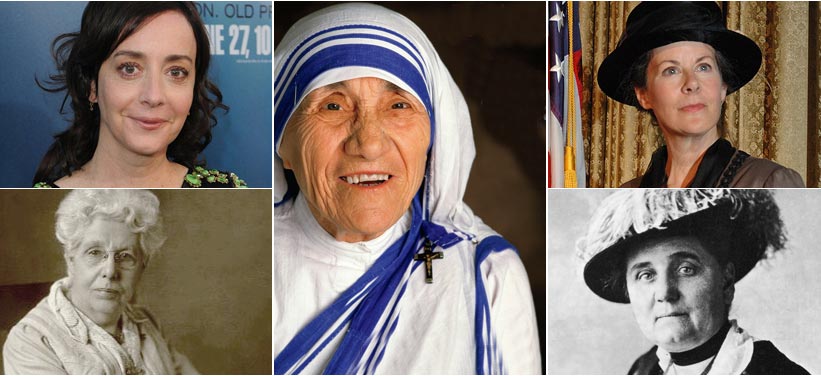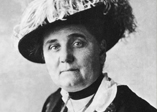100 Whatsapp Messages For Women’s Day Wishes In English
100 Whatsapp Messages For Women’s Day Wishes In Hindi

Most Influential Women in the History of Social Work

Social work is a field that has witnessed many pioneering women from around the world, making radical changes over the decades. In honor of Women’s Day, we would like to recognize five most influential women social workers in history.
1. Mother Teresa
 Mother Teresa, as she was commonly known as, was a Roman Catholic religious missionary and sister, born in Macedonia in 1910. After living in Yugoslavia for about 30 years, she moved to India and devoted her entire life in social work. She founded the Missionaries of Charity, a Roman Catholic congregation, which is active in 133 countries. They run homes and hospices for people with leprosy, tuberculosis and HIV/AIDS; mobile clinics and dispensaries; soup kitchens; orphanages; schools; and children and family counseling programs. Mother Teresa devoted her life to provide “wholehearted free service to the poorest of the poor,” and was honored with 1979 Nobel Peace Prize. She was also recognized as a saint by the Catholic Church.
Mother Teresa, as she was commonly known as, was a Roman Catholic religious missionary and sister, born in Macedonia in 1910. After living in Yugoslavia for about 30 years, she moved to India and devoted her entire life in social work. She founded the Missionaries of Charity, a Roman Catholic congregation, which is active in 133 countries. They run homes and hospices for people with leprosy, tuberculosis and HIV/AIDS; mobile clinics and dispensaries; soup kitchens; orphanages; schools; and children and family counseling programs. Mother Teresa devoted her life to provide “wholehearted free service to the poorest of the poor,” and was honored with 1979 Nobel Peace Prize. She was also recognized as a saint by the Catholic Church.
2. Jane Adams
 Jane Adams was perhaps one of the most popular female social workers who founded the world’s first settlement houses – the legendary Hull House in Chicago. She identified the problems of the poor in Chicago and likewise, designed the House’s services, adding a gymnasium, library and offering classes for children and adults among other services. She established the Chicago School of Civics and Philanthropy, and was also the first female president of the National Conference of Charities and Corrections. Later on, she became the president of Women’s International Peace Congress and Women’s Peace Party. Jane Adams also received the 1931 Nobel Peace Prize for her contributions in the field of social work.
Jane Adams was perhaps one of the most popular female social workers who founded the world’s first settlement houses – the legendary Hull House in Chicago. She identified the problems of the poor in Chicago and likewise, designed the House’s services, adding a gymnasium, library and offering classes for children and adults among other services. She established the Chicago School of Civics and Philanthropy, and was also the first female president of the National Conference of Charities and Corrections. Later on, she became the president of Women’s International Peace Congress and Women’s Peace Party. Jane Adams also received the 1931 Nobel Peace Prize for her contributions in the field of social work.
3. Jeannette Rankin
 She was a graduate of the Columbia School of Social Work and was the first woman to be elected in the U.S. Congress. She was a strong advocate of women’s suffrage and was a lifelong pacifist. Being a congresswoman, she first introduced a suffrage amendment on the House Floor. Rankin was also the one Congress member to vote against the country entering World Wars I and II. Her contributions in the field of social work and major influences in shaping women empowerment is an intriguing story to narrate to the world.
She was a graduate of the Columbia School of Social Work and was the first woman to be elected in the U.S. Congress. She was a strong advocate of women’s suffrage and was a lifelong pacifist. Being a congresswoman, she first introduced a suffrage amendment on the House Floor. Rankin was also the one Congress member to vote against the country entering World Wars I and II. Her contributions in the field of social work and major influences in shaping women empowerment is an intriguing story to narrate to the world.
4. Annie Besant
 Despite being an Irish woman, Annie Besant made India her second home, fighting for the rights of the Indians throughout her life. She was the first woman president of Indian National Congress and was heavily influenced by the country’s civilization and culture. She was a renowned educationalist, social worker, political leader, social reformer, journalist and women’s right activist. She fought for the Human Rights of women in India.
Despite being an Irish woman, Annie Besant made India her second home, fighting for the rights of the Indians throughout her life. She was the first woman president of Indian National Congress and was heavily influenced by the country’s civilization and culture. She was a renowned educationalist, social worker, political leader, social reformer, journalist and women’s right activist. She fought for the Human Rights of women in India.
5. Mary Ellen Richmond
 She was the one of the social work pioneers to struggle for the standardization and professionalization of social work. She is recognized for initiating the first statement of principles for direct social work practices. She implored educational institutions to train social workers, pushing for standardization of the practices. Her famous book Social Diagnosis was one of the first social work books to include all elements of medicine, law, history, psychiatry and psychology.
She was the one of the social work pioneers to struggle for the standardization and professionalization of social work. She is recognized for initiating the first statement of principles for direct social work practices. She implored educational institutions to train social workers, pushing for standardization of the practices. Her famous book Social Diagnosis was one of the first social work books to include all elements of medicine, law, history, psychiatry and psychology.
- Women’s Day History
- Significance of Women’s Day
- Women’s Day Story
- UN Themes for Women's Day
- UN Day for Women's Rights
- International Women’s Day
- Rio Olympic 2016
- First Women’s Day
- Women’s Day Wishes
- Women’s Day Messages
- Women’s Day Quotes
- Women’s Day Whatsapp Messages
- Popular Sayings for Women’s Day
- Women’s Day Greetings
- Women’s Day Poems
- Women's Day Essay
- Women’s Day Speech
- Top 10 Richest Women in The World
- Women’s Day Speech in Hindi
- Women’s Day Prayers
- Women’s Day scraps
- Women's Day Images
- Women’s Day Gifts
- Most Inspiring Women in History
- What is International Women's Day
- Facts About Women's Emotions
- 50 Most Inspirational Women Worldwide
- Famous Female Athletes
- Biographies of Inspiring Women
- Mother's Day Messages
- Mother's Day Quotes
- Mother's Day Poems
- Mother's Day Wishes
- Mother's Day in UK
- Women in Indian Army



